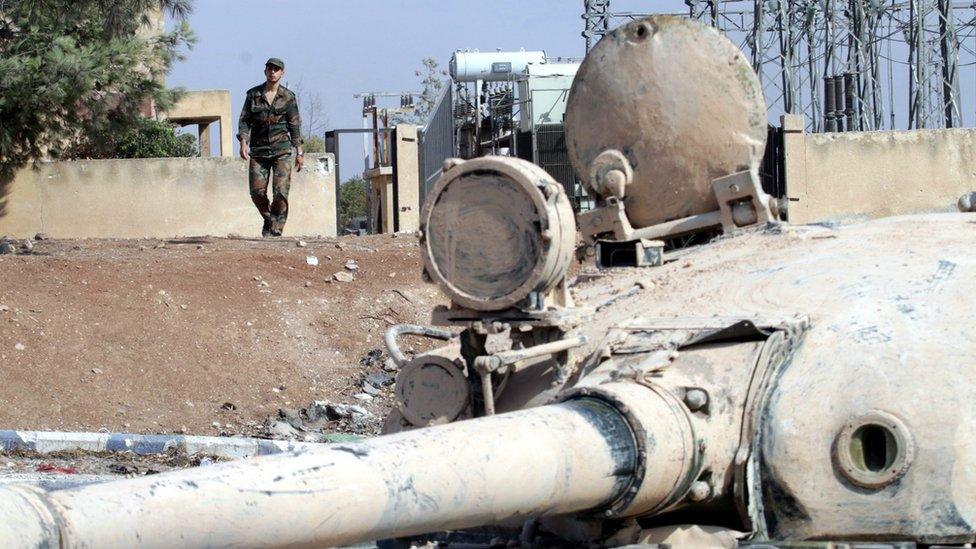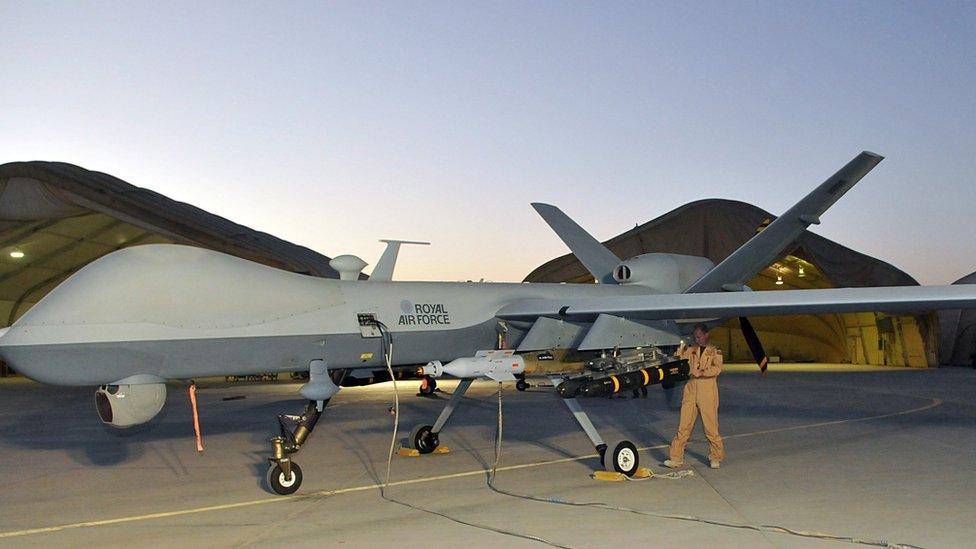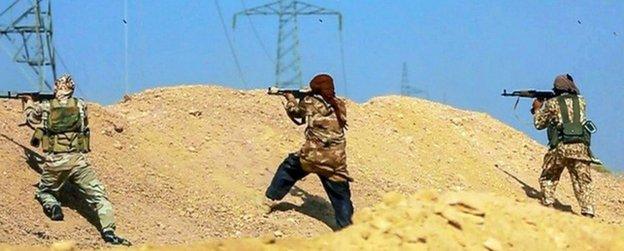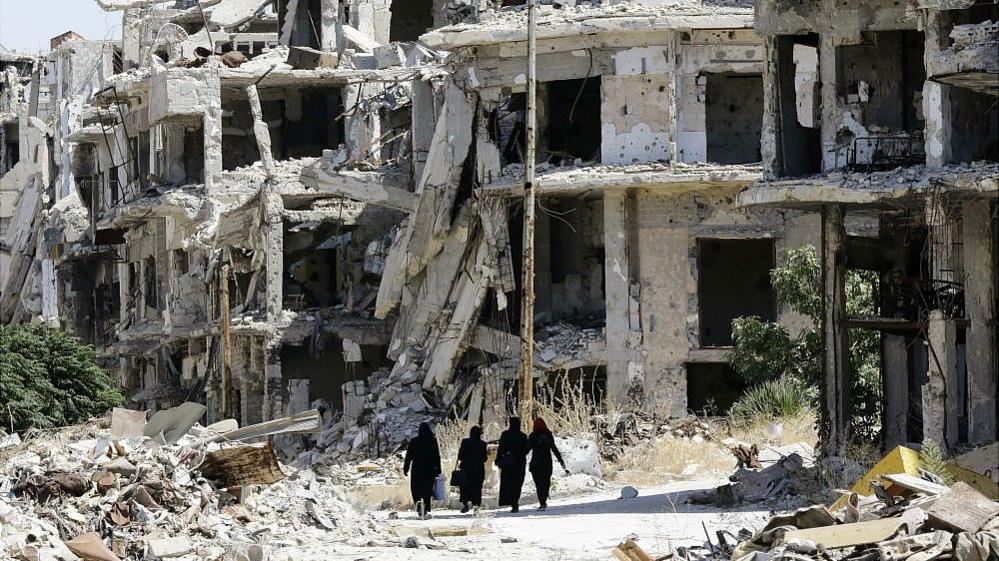Syria conflict: UK took part in strike that killed government troops
- Published

Syria says its forces were deliberately attacked
The UK took part in a recent coalition air strike in Syria that killed dozens of government troops fighting the so-called Islamic State, the Ministry of Defence (MoD) has confirmed.
Russia said at least 62 Syrian personnel were killed in the Deir al-Zour strikes on Saturday.
The MoD said it would "not intentionally target Syrian military units".
The US has already expressed "regret" for the "unintentional loss of life".
The British aircraft that took part in the operation was an unmanned remotely piloted Reaper drone.

The RAF's Reaper drones can carry both Hellfire missiles and 500lb Paveway laser-guided bombs
An MoD spokesman said: "We can confirm that the UK participated in the recent coalition air strike in Syria, south of Deir al-Zour on Saturday and we are fully co-operating with the coalition investigation."
A Syrian army source said the air strike had allowed IS to gain ground in the area around the Syrian airbase, but that Syrian forces had regained most positions on the hilltop nearby with the help of Syrian and Russian air support.
Syrian President Bashar al-Assad denounced the air strike as a "flagrant aggression".
The attack has dealt a further blow to an already shaky ceasefire deal, which was agreed by the US and Russia on Monday.
The terms of the deal include a nationwide ceasefire between the armed opposition and the Syrian government, but not jihadist groups. It will be renewed every 48 hours if it holds.
The purpose of the truce is to allow for the safe passage of aid, but after seven days it still has not been fulfilled.
Though hopes for the week-old truce are fading amid alleged violations, US Secretary of State John Kerry said it was "holding but fragile".

Analysis

Fighters of so-called Islamic State in Deir al-Zour have been battling Syrian troops
By Jonathan Marcus, BBC diplomatic correspondent
The list of countries engaged in the mistaken strike on Syrian government positions south of Deir al-Zour on Saturday underscores that this was indeed a coalition operation.
US, Australian and Danish aircraft were all involved as well as a British Reaper unmanned system.
Several things seem to have gone wrong.
Coalition intelligence misidentified the ground units as IS when they were Syrian government forces.
But there also seem to have been problems in the established procedures for US-Russian co-operation.
The Americans reportedly informed the Russians that there were to be strikes in this area but were not warned off.
Maybe the Russians were not fully aware of the location of Syrian positions.
Or maybe the scope of the operation was not clear. Coalition warplanes have struck oil targets around Deir al-Zour on a number of occasions and did so again on Saturday.

The Pentagon said it was targeting what it thought was an IS fighting position, but the air strike was halted when Russia informed the US that the coalition aircraft were hitting President Assad's forces.
Denmark has confirmed that Danish F16s were involved in the airstrike, alongside Australian F18 Hornets and US aircraft.
The RAF's Reaper drones can carry both Hellfire missiles and 500lb Paveway laser-guided bombs.
Australia's Department of Defence said the US-led coalition "will review this incident thoroughly", offering its condolences to the families of government soldiers killed or wounded.
The attack put "a very big question mark" over the truce's future, said Russia's UN Ambassador Vitaly Churkin.
The air attack caused a bitter row between the US and Russia at the United Nations Security Council on Saturday night, with each country's representatives walking out while the other was speaking.

Image from a group close to the Syrian army, purportedly of a soldier wounded in the coalition air strike on a base in Deir al-Zour.
US envoy Samantha Power criticised Russia for calling an emergency meeting of the council, which she said was "cynical and hypocritical".
"Russia really needs to stop the cheap points-scoring and the grandstanding and the stunts and focus on what matters, which is implementation of something we negotiated in good faith with them," she told reporters.
But Mr Churkin said he had never seen "such an extraordinary display of American heavy-handedness" as shown by Ms Power.
- Published19 September 2016

- Published18 September 2016
